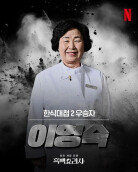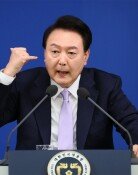Japans right-wing groups hold rallies vs. Korean pop culture
Japans right-wing groups hold rallies vs. Korean pop culture
Posted August. 09, 2011 03:00,
Japanese right-wing groups have taken collective action to boycott "hallyu," or Korean pop culture, which is fast spreading across the world.
An anti-hallyu demonstration was convened in front of Fuji TV Monday in Odaiba, Tokyo on Sunday. Some 600 protestors initially took part in the rally but the number jumped to more than 2,000, online media organizations reported.
The participants sang the Japanese national anthem and waved national flags. Some chanted, Long Live the Emperor!
It was a typical form of demonstration by a right-wing group. The scene of the rally was webcast live via several online multimedia sites in Japan.
Protestors chanted slogans such as Stop hallyu and Revoke broadcasters license, with one shouting We`ve gathered today to redeem Fuji TV from Koreas hands.
The rally was organized through 2 Channel, a major Internet community site for Korean pop culture critics. Organizers pledged to hold a rally again on Aug. 21.
Several sites that circulate unrefined Internet opinions led the rally, but the rally had little impact on Japanese society. Hence major newspapers and broadcasters did not even bother to mention the rally.
The formation of anti-hallyu sentiment in Japan apparently results from a sense of crisis among certain Japanese entertainers who have been losing ground, coupled with interest from Japans ultranationalists who criticize Korea.
The rally is believed to have occurred in front of Fuji TV because the protestors claimed that the network is extensively broadcasting Korean soap operas.
Sparking the rally was Sousuke Takaoka, 29. In a recent Twitter message, he said, I`ll never watch Channel 8 (Fuji TV) again. I often think it`s Korean TV. Japanese people want traditional Japanese programs, causing a stir in the online community.
Takaoka played an ethnic Korean high school student in Japan in the 2005 movie Head Butting. The movie showed the hardship facing ethnic Koreans in Japan and criticized Japanese society.
Since starring in the movie, Takaoka was labeled an anti-Japan actor, suffered mental anguish, and his distrust in media grew, a Japanese sports daily reported.
With news spreading that Takaoka left his management agency after criticizing Fuji TV, anti-hallyu sentiment by right-wing groups snowballed. Former Yokohama Mayor Hiroshi Nakada criticized Fuji TV, saying I think (Takaokas comments) are justified. Which countrys broadcaster is Fuji?, in condemning Fuji.
While serving as Yokohama mayor, Nakada urged public schools in the city to adopt history textbooks distorting Korea-Japan history.
Lee Mun-won, a popular culture commentator in Korea, said, Certain political factions cannot affect popular culture markets, be it in Korea or Japan, adding, As long as Korean dramas remain popular, hallyu will remain powerful in Japan.
jkmas@donga.com







